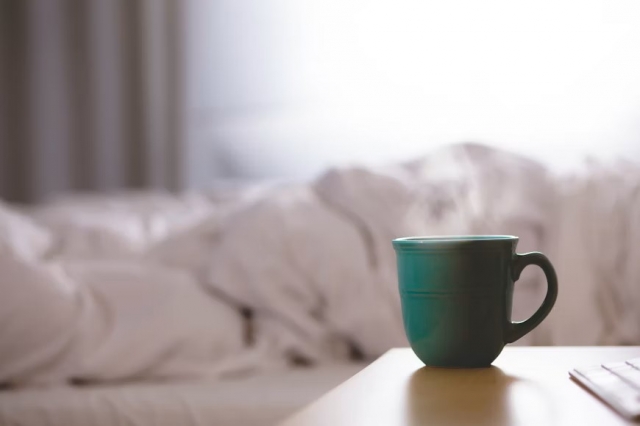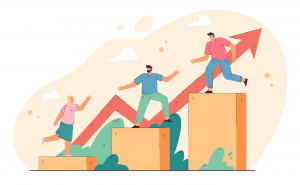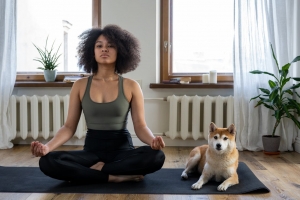Hustle culture lied to us. Pushing through with four hours of sleep might sound noble in your 20s, but eventually, your body will file a complaint with interest.
Sleep isn't a luxury or a productivity hack; it's vital. And if you've been lying awake at 3 a.m., staring at the ceiling, wondering why your brain won't shut off, you're not alone.
Millions struggle with sleep issues, and for many, the answer is cognitive behavioral treatment of insomnia, a non-drug approach that retrains the mind.
Hold up, we're getting ahead of ourselves. Why does sleep matter this much? Why are we all struggling so much to get it right?
Why We Need Sleep
Sleep is your body's night crew. While you're out cold, it's fixing cells, balancing hormones, and helping you process the day's emotional chaos.
The Sleep Foundation simply puts it that downtime isn't only for recharging. It's when your body handles everything from keeping your heart healthy to sharpening your decision-making skills.
Essentially, sleep isn't something your body does when it's done with everything else. It's everything else. Over time, sleep deprivation is linked to serious problems:
- High blood pressure
- Weight gain
- Increased risk of diabetes and heart disease
- Anxiety and depression
- Memory issues and poor concentration
The Cleveland Clinic warns that chronic sleep loss also messes with your body's ability to repair itself. So if you're skipping sleep, you're slowly sabotaging your health, and self-care goes out the window.
But How Much Sleep Do You (Really) Need?
There's a lot of sleep advice floating around out there. Honestly, there's no magic number that works for everyone.
The standard seven to nine hours is a solid benchmark for most adults, according to Medical News Today. Nonetheless, some people may need more, slightly less, and sleep quality is as important as quantity.
That said, too much sleep isn't great either. The team at Johns Hopkins Medicine notes that regularly sleeping over nine hours might be a red flag for underlying health conditions like sleep apnea or depression.
So, it's not about chasing an exact number but rather about feeling rested, refreshed, and functioning well during the day.
Sleep Is Powerful Self-Care
Many of us don't prioritize sleep. Instead, we'll focus on work deadlines, late-night scrolling, or binge-watching shows until we pass out.
Taking sleep seriously is one of the most radical forms of self-care. You're not lazy for going to bed early. You're not weak for needing rest. You're human and you're designed to sleep.
Bedtime gives your brain space to process the day. It boosts creativity. It helps with emotional regulation (so you're less likely to cry in a meeting or yell at traffic).
And when you wake up after a truly restful night? That's real energy, not caffeine-powered survival mode.
What to Do When Sleep... Doesn't Happen
For some people, falling asleep is easier said than done. Treating insomnia symptoms goes deeper than practicing good sleep hygiene.
Enter: cognitive behavioral treatment of insomnia (CBT-I). According to OptiMindHealth, CBT-I is one of the most effective, evidence-based treatments for chronic insomnia.
And nope, it's not about spilling your life story on a couch. CBT-I is a structured, practical approach that targets the root of the problem: the unhelpful thoughts that sabotage your shut-eye.
It might include things like:
- Sleep restriction therapy (limiting time in bed to build a stronger sleep drive)
- Stimulus control (breaking the association between your bed and wakefulness)
- Cognitive restructuring (challenging beliefs like “I'll never sleep again”)
- Relaxation techniques like deep breathing or progressive muscle relaxation
CBT-I doesn't work overnight. Still, it does work. Studies show it's more effective than sleeping pills in the long term and has fewer side effects when treating chronic insomnia disorder.
How to Start Reclaiming Your Sleep
Even if you're not dealing with chronic insomnia, small changes can make a big difference in how you sleep. Here are a few science-backed tips to start tonight:
Set a Wind-Down Routine
Signal to your brain that sleep is coming. Think: herbal tea, warm bath, light reading. Ditch the doomscrolling.
Keep a Consistent Sleep Schedule
Yes, this also applies to weekends. Your body loves rhythm. Pick a bedtime and wake time and stick with it.
Create a Sleep Sanctuary
Cool, dark, and quiet. Grab some blackout curtains, a sleep mask, or a white noise machine.
Limit Caffeine and Alcohol
You've heard this many times because it's true. Caffeine lingers for hours, and alcohol disrupts deep sleep. Cut off both at least four to six hours before bed.
Try CBT-I Tools
Even if you don't see a behavioral sleep medicine specialist, there are great apps and books based on behavioral sleep medicine principles to help guide you.
You Deserve to Rest
Society rewards overwork and undersleeping. Don't give in to the herd mentality. Rather, give yourself permission to rest.
When the world tells you to keep going, hustle harder, or finish one more thing, don't listen.
Close your laptop. Turn off the light.
And go to bed.






